Loss of strands remains a major area of study in scientific research. Researchers focus on peptides like Epithalon to understand their role in follicle development and scalp health.
This article explores the research behind Epithalon. It also examines its potential effects on epitalon hair growth, strictly from a research perspective.
Epithalon is a peptide derived from the pineal gland. It has been studied for its role in regulating telomerase activity. Research suggests that it may support cell regeneration, enzyme synthesis, and DNA repair. These factors could impact follicle renewal.
Scientists are investigating how this peptide interacts with the biological growth cycle. They are particularly focused on its relation to anagen and telogen phases. As research progresses, the potential link between epitalon hair growth and follicle longevity remains an active area of exploration.
Learn more about Epitalon peptides and their potential at Direct Peptides Austria.
Some studies suggest that peptides may impact density, new strand formation, and overall scalp vitality. Researchers focus on how Epithalon may support keratin synthesis and collagen production. Both are essential for strong, healthy follicles.
However, further research is needed to determine its precise role in addressing causes of strand loss. Scientists actively examine whether epitalon hair growth mechanisms contribute to improving follicle survival and longevity.
Telomerase is an enzyme that plays a critical role in DNA protection. Scientific studies show that its regulation links to aging. This includes wrinkles and follicle degeneration.
Research explores whether Epithalon’s ability to support telomerase activity may help regenerate follicles. This may improve strand thickness and scalp health. The impact of epitalon hair growth on telomerase-related mechanisms is an area of great interest in longevity studies.
Explore Peptide Supplies at Direct Peptides Austria for all your reconstitution requirements.
Scalp inflammation is one of the contributing factors to thinning. Research into peptide therapy has shown promising results. It helps reduce oxidative stress and improves the healing process of tissues.
Epithalon’s ability to support enzyme activity and DNA repair is under scientific examination. Scientists are studying its potential role in maintaining a healthy environment for new hair growth. Since inflammation affects epitalon hair growth, understanding its role in follicle longevity remains crucial.
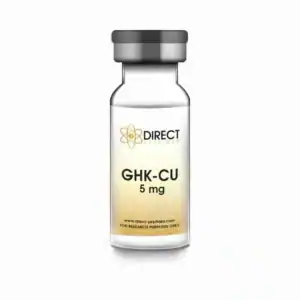 GHK-Cu (Copper Peptide) has been widely studied for its effects on collagen production, scalp inflammation, and follicle renewal.
GHK-Cu (Copper Peptide) has been widely studied for its effects on collagen production, scalp inflammation, and follicle renewal.
It has shown promising results in supporting regeneration, hair regrowth, and overall scalp health.
Researchers compare the mechanisms of Epitalon and GHK-Cu to analyze their different roles in follicle stimulation.
They also study how these peptides help in the reduction of DHT (Dihydrotestosterone)-related loss.
Explore GHK-Cu copper peptides for research with Direct Peptides Austria.
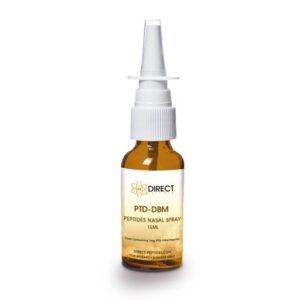 Similarly, PTD-DBM is another peptide under investigation for its potential to influence growth cycles.
Similarly, PTD-DBM is another peptide under investigation for its potential to influence growth cycles.
Researchers examine its interaction with DHT levels and follicle cells to determine how effective it is compared to Epitalon.
Scientists are also studying the possible role of epitalon hair growth as a complementary treatment alongside PTD-DBM.
Find PTD-DBM peptides for advanced studies at Direct Peptides Austria.
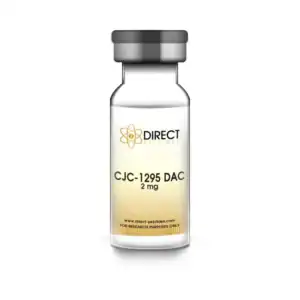 CJC-1295 is a peptide being studied for its role in growth hormone release.
CJC-1295 is a peptide being studied for its role in growth hormone release.
Researchers explore whether its effects on cell regeneration, quality of life, and tissue repair may indirectly support follicle longevity.
They also examine how it may contribute to epitalon hair growth research.
Check out CJC-1295 DAC peptides with Direct Peptides Austria.
Thymosin Beta-4 is under scientific review for its role in wound healing and tissue repair. Researchers are investigating how its regenerative properties may help with follicle protection and scalp health. The combination of Thymosin Beta-4 and epitalon hair growth studies could provide additional insights into improving strand restoration rates.
Discover Thymosin Beta-4 peptides for research at Direct Peptides Austria.
Research explores whether Epitalon may contribute to follicle health, regeneration, and improved strand density. It does this through amino acid synthesis and peptide therapy. Some findings indicate that it may assist in scalp health, collagen production, and the regulation of NAD (Nicotinamide Adenine Dinucleotide) levels. These functions are essential for cellular energy. Researchers continue to study epitalon hair growth. They focus on its benefits for strand density and thickness.
All peptide research follows strict conditions of use and guidelines. Studies focus on understanding how peptides affect DNA replication, enzyme function, and oxidative stress. Current findings suggest that researchers should consider potential side effects.
They should also review any inaccuracies in future studies. This ensures accurate and ethical conclusions regarding peptide therapy. The study of epitalon hair growth and its safety profile remains a critical area for future research.
Researchers monitor the duration of peptide-related studies to determine their effects on follicle regeneration. They study variables such as dosage, supplementation, and administration methods (e.g., injections or nasal spray versions). These factors may influence growth cycles. More research is needed to establish clear timelines regarding epitalon hair growth effectiveness.
Scientific studies explore the use of products like GHK-Cu, PTD-DBM, and other best peptides for combined research approaches. Researchers analyze how Epitalon interacts with other peptides, dietary supplements, and oral medications.
They study whether these can work together to enhance follicle regeneration. The potential synergy of epitalon hair growth with other treatments is a growing area of interest.
Studies continue to investigate epitalon hair growth potential. They focus on its effects on follicle vitality, collagen production, and scalp inflammation reduction. While preliminary findings suggest promising areas of study, further research is needed. Scientists aim to fully understand its role in strand restoration and overall scalp health.
Peptide research aims to understand the aging process and its impact on strand retention. Scientists investigate whether Epitalon could play a role in preventing premature loss by supporting collagen, DNA repair, and scalp health. Future studies will help clarify its role in maintaining follicle vitality over time.
Epitalon remains a subject of ongoing research. Scientists study its potential effects on regrowth, follicle health, and scalp inflammation. It shows promise in peptide therapy and telomerase regulation. However, further studies are needed to establish its exact role in epitalon hair growth and overall scalp health.
Researchers continue to explore its applications. They study it alongside other peptides like GHK-Cu, PTD-DBM, CJC-1295, and Thymosin Beta-4 to gain deeper insights into its scientific potential.
The products mentioned in this posts intended for research and medical purposes only, to be only used by trained professionals.
[1] Khavinson V, Diomede F, Mironova E, Linkova N, Trofimova S, Trubiani O, Caputi S, Sinjari B. AEDG Peptide (Epitalon) Stimulates Gene Expression and Protein Synthesis during Neurogenesis: Possible Epigenetic Mechanism. Molecules. 2020 Jan 30;25(3):609.
[2] Pickart L, Margolina A. Regenerative and Protective Actions of the GHK-Cu Peptide in the Light of the New Gene Data. Int J Mol Sci. 2018 Jul 7;19(7):1987.
[3] Ryu YC, Park J, Kim YR, Choi S, Kim GU, Kim E, Hwang Y, Kim H, Han G, Lee SH, Choi KY. CXXC5 Mediates DHT-Induced Androgenetic Alopecia via PGD2. Cells. 2023 Feb 9;12(4):555.
[4] Teichman SL, Neale A, Lawrence B, Gagnon C, Castaigne JP, Frohman LA. Prolonged stimulation of growth hormone (GH) and insulin-like growth factor I secretion by CJC-1295, a long-acting analog of GH-releasing hormone, in healthy adults. J Clin Endocrinol Metab. 2006 Mar;91(3):799-805.
[5] Goldstein AL, Hannappel E, Sosne G, Kleinman HK. Thymosin β4: a multi-functional regenerative peptide. Basic properties and clinical applications. Expert Opin Biol Ther. 2012 Jan;12(1):37-51.
[6] Kim E, Seo SH, Hwang Y, Ryu YC, Kim H, Lee KM, Lee JW, Park KH, Choi KY. Inhibiting the cytosolic function of CXXC5 accelerates diabetic wound healing by enhancing angiogenesis and skin repair. Exp Mol Med. 2023 Aug;55(8):1770-1782.
Shop ALL Peptide Vials from Direct Peptides Austria today, your trusted supplier of premium clinical grade peptides online.
Epitalon and Epithalon describe the same synthetic peptide used in laboratory research. Scientific papers use both names for the same compound. Epithalamin is different. It is a natural peptide mixture taken from the pineal gland. Epitalon was created as a purified version to allow more controlled and consistent research studies.
Epitalon supports biological processes linked to cell renewal and aging. These processes matter because hair follicle stem cells control repeated growth cycles. Research examines how Epitalon’s role in cellular stability and regeneration pathways may relate to long-term follicle function and the ability of follicles to remain active over time.
Epitalon is studied for its role in aging-related cellular mechanisms, including telomerase activity and DNA protection. Hair follicles age through repeated growth cycles and cellular stress. Research explores how Epitalon’s effects on cellular aging processes may support follicle longevity and help maintain healthier scalp tissue over extended periods.
Keratinocytes form the hair shaft and help maintain follicle structure. Epitalon research focuses on cellular health, protein production, and tissue repair. These functions connect to how keratin-producing cells operate within follicles. Ongoing studies examine how peptide-regulated cellular pathways may support normal keratinocyte activity in regenerative tissues.
Miniaturized hair follicles result from aging, oxidative stress, and reduced cellular signaling. Epitalon research targets pathways involved in cellular longevity and tissue maintenance. These mechanisms are important for understanding how follicles change in size and function over time and how aging-related stress affects overall follicle structure.
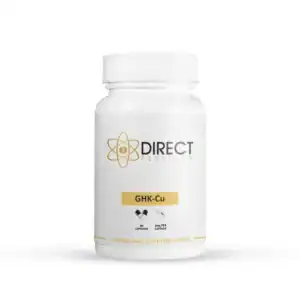
GHK-Cu Capsules
£63.33 Add to cart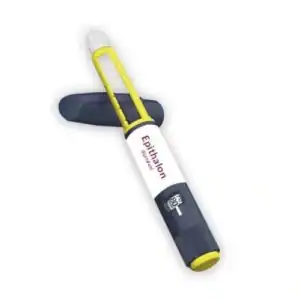
Epithalon Pre-Mixed Pen 100mg
£96.33 – £260.09Price range: £96.33 through £260.09 Select options This product has multiple variants. The options may be chosen on the product page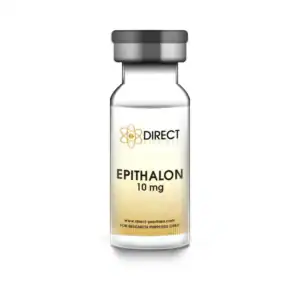
BULK BUY
Epithalon Peptide Vial
£13.75 – £318.75Price range: £13.75 through £318.75 Select options This product has multiple variants. The options may be chosen on the product page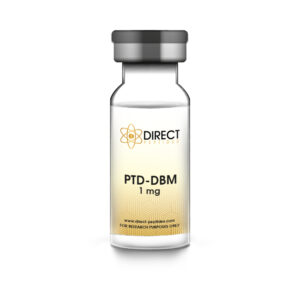
PTD-DBM Peptide Vial
£18.89 – £27.87Price range: £18.89 through £27.87 Select options This product has multiple variants. The options may be chosen on the product pageALL CONTENT AND PRODUCT INFORMATION AVAILABLE ON THIS WEBSITE IS FOR EDUCATIONAL PURPOSES ONLY.
DISCLAIMER: These products are intended solely as a research chemical only. This classification allows for their use only for research development and laboratory studies. The information available on our Austria Direct Peptides website: https://direct-peptides.com is provided for educational purposes only. These products are not for human or animal use or consumption in any manner. Handling of these products should be limited to suitably qualified professionals. They are not to be classified as a drug, food, cosmetic, or medicinal product and must not be mislabelled or used as such.